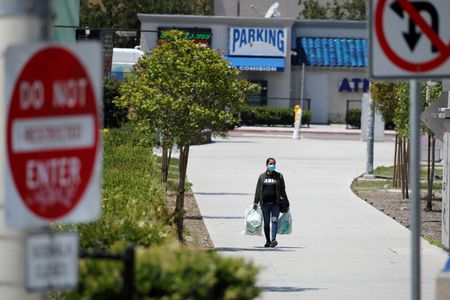
(This Mar 31 story corrects spelling of name in third paragraph)
MEXICO CITY (Reuters) – The U.S. government should take stronger action to fight discrimination and sexual harassment in temporary work programs for migrants, an advocacy group for Mexican women who complain of such abuse said on Thursday.
Although the U.S. and Mexican governments have held meetings to address a petition filed on the matter last year, the efforts did not go far enough, said the Center for Migrant Rights.
“A year has passed with lots of talk but little action,” executive director Rachel Micah-Jones told reporters at the unveiling of a report sent to Mexican authorities.
Thursday’s report describes certain agricultural jobs that appear to exclude women and highlights accusations of sexual harassment they face at work.
“Throughout my 13 years working in this industry, I have seen many situations where women suffer,” said one of the women, Daria Hernandez.
In her work at a Maryland crab processing plant, she added, she often saw a male supervisor touch and harass women before threatening to report them or send them to Mexico if they complained.
Last year’s petition urged Mexico to pursue remedies with U.S. authorities under the United States-Mexico-Canada Agreement (USMCA), which has stricter labor provisions than the trade pact it replaced in 2020.
The U.S. Department of Labor and Mexico’s Labor Ministry did not immediately respond to requests for comment.
U.S. and Mexican authorities have previously vowed to protect the rights of migrant workers.
Mexico’s government could request further investigation by a dispute resolution panel set up under the USMCA, Micah-Jones added.
One of those who signed last year’s petition was Adareli Ponce, who has worked at U.S. chocolate and crawfish businesses under a temporary program.
She said she had never heard back about a farming job she applied for last year, although she later saw men hired for the same position and similar work.
“I have not seen a single woman afforded the same opportunity,” she said in the center’s latest report, adding that many farm job ads call exclusively for men.
(Reporting by Daina Beth Solomon; Editing by Bradley Perrett)

